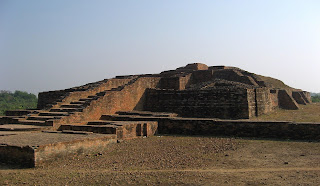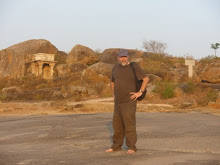
I have heard that on one occasion the Blessed One was staying at Varanasi in the Game Refuge at Isipatana. There he addressed the group of five monks:
"Form, monks, is not self. If form were the self, this form would not lend itself to dis-ease. It would be possible [to say] with regard to form, 'Let this form be thus. Let this form not be thus.' But precisely because form is not self, form lends itself to dis-ease. And it is not possible [to say] with regard to form, 'Let this form be thus. Let this form not be thus.'
"Feeling is not self...
"Perception is not self...
"[Mental] fabrications are not self...
"Consciousness is not self. If consciousness were the self, this consciousness would not lend itself to dis-ease. It would be possible [to say] with regard to consciousness, 'Let my consciousness be thus. Let my consciousness not be thus.' But precisely because consciousness is not self, consciousness lends itself to dis-ease. And it is not possible [to say] with regard to consciousness, 'Let my consciousness be thus. Let my consciousness not be thus.'
"What do you think, monks — Is form constant or inconstant?"
"Inconstant, lord."
"And is that which is inconstant easeful or stressful?"
"Stressful, lord."
"And is it fitting to regard what is inconstant, stressful, subject to change as: 'This is mine. This is my self. This is what I am'?"
"No, lord."
"...Is feeling constant or inconstant?"
"Inconstant, lord."...
"...Is perception constant or inconstant?"
"Inconstant, lord."...
"...Are fabrications constant or inconstant?"
"Inconstant, lord."...
"What do you think, monks — Is consciousness constant or inconstant?"
"Inconstant, lord."
"And is that which is inconstant easeful or stressful?"
"Stressful, lord."
"And is it fitting to regard what is inconstant, stressful, subject to change as: 'This is mine. This is my self. This is what I am'?"
"No, lord."
"Thus, monks, any form whatsoever that is past, future, or present; internal or external; blatant or subtle; common or sublime; far or near: every form is to be seen as it actually is with right discernment as: 'This is not mine. This is not my self. This is not what I am.'
"Any feeling whatsoever...
"Any perception whatsoever...
"Any fabrications whatsoever...
"Any consciousness whatsoever that is past, future, or present; internal or external; blatant or subtle; common or sublime; far or near: every consciousness is to be seen as it actually is with right discernment as: 'This is not mine. This is not my self. This is not what I am.'
"Seeing thus, the well-instructed disciple of the noble ones grows disenchanted with form, disenchanted with feeling, disenchanted with perception, disenchanted with fabrications, disenchanted with consciousness. Disenchanted, he becomes dispassionate. Through dispassion, he is fully released. With full release, there is the knowledge, 'Fully released.' He discerns that 'Birth is ended, the holy life fulfilled, the task done. There is nothing further for this world.'"
That is what the Blessed One said. Gratified, the group of five monks delighted at his words. And while this explanation was being given, the hearts of the group of five monks, through not clinging (not being sustained), were fully released from fermentation/effluents.





